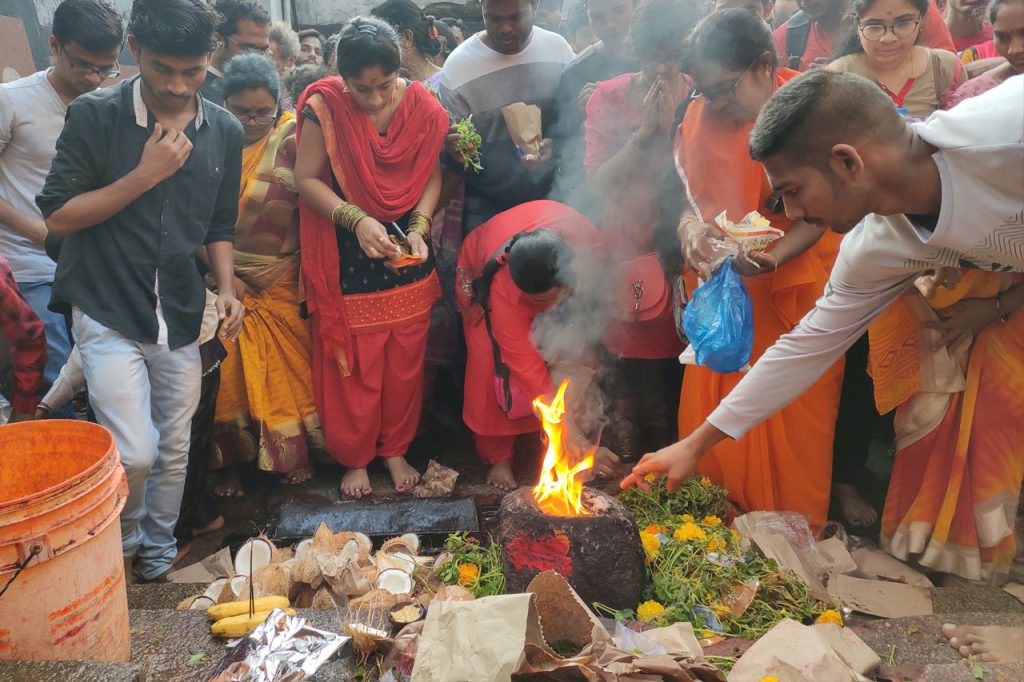Karma Yoga
Now that we’ve explored the relationship between psychology, Vedanta, cognitive therapy and qualifications, let’s move on to a new topic…karma yoga. First, let’s give it a definition…karma yoga is an essential practice in the Vedanta hierarchy. Those who may be tempted to skip this step, do so at their own peril…it forms the platform, and starts the process of shifting your identity from the “who” to a “what.” Vedanta is a comprehensive system with each step integrating with the others. So, no skipping steps.
Gratitude and Humility
The basic idea of karma yoga is to be grateful for everything that happens to you, both good and bad. Karma yoga says that everything is a gift from God, and that we should be grateful for those gifts. Those gifts are called “Prasad.” Wait a minute! God you say.! Don’t get excited. This isn’t your big-guy-in-the- sky-God. This is your everything-in-the-universe- God. That’s everything you see-touch-feel-or think- God…including everything in your head. It’s the material and intelligent cause of the universe. So what happens when you express an appreciation for God’s gifts? You develop a profound sense of humility and gratitude. What could be more psychologically healthy than that?
How is it possible to be grateful for the bad stuff? First off, there is no bad stuff. Even if there were, there is no way to ignore the bad stuff… and you would surely miss a golden opportunity to transform the bad stuff into good stuff. And as an added bonus, when you put yourself in the proper place in the universe, (meaning God-centered), it can be a powerful stress reliever. The world is much greater and more powerful than you are as an individual…and recognizing that fact, relieves you of the burden of playing God. To quote a popular 12 step phrase, “let go and let God.”
A New Lifestyle
Is that all there is to karma yoga? No, there’s more. To complete the picture, there are five prescribed tasks. Before I describe each task, let me begin by saying that this is not a checklist you do once. This is a lifestyle. You get up everyday with the intention of living the life of a karma yogi and you tackle these tasks one at a time. That not only provides the basis for a healthy life, it is also essential preparation for understanding both novice and more advanced concepts of Vedanta. In fact, they are inseparable. Sophisticated, intellectual people might be tempted to skip this step. Broken record!… No skipping, If you do, you do so at your own peril.
OK, what are the tasks?
5 Tasks
Task one: Worship of God. Oh no, not more God talk. Yes, more God talk. Obviously, you have to have a God before you can worship one. (See the previous description under the God topic.) You can see from the definition that it’s inclusive and flexible. It helps to have an image that represents God. So, If you love Jesus, love Jesus. If you love Buddha, love Buddha, and so forth. Remember “God as you understand Him”. If you love nature, love nature. It is easiest to appreciate God as nature. If you like, keep a little altar, and say some prayers or chants. Importantly, keep God in your mind throughout the day. The next four steps hinge on this step, because if you cultivate God-vision, (seeing god in everything,) the next tasks follow organically. This starts the cognitive behavioral shift from seeing the world through the eyes of the individual to seeing the world through God’s eyes.
Task two: Worship your parents. Are you kidding! But I’ve got a bone to pick with good old Mom and Dad. Yes, I know. We all have unfinished business with our parents. I don’t think you need me to explain the value of forgiveness and of finding a way of loving people who may have harmed us. I know it’s not always easy. And parents can be the most difficult. And while this is not a formal injunction by karma yoga, you would be wise to make peace with any family member. Do your best. The value to your mental health is immeasurable. If you’ve been severely mistreated and find this task difficult, consider consulting a mental health specialist for help.
Task three: Worship the scripture. Vedanta scripture is the very embodiment of truth and wisdom. The word of God. What could one possibly gain from the worship of scripture? Oh I don’t know… maybe wisdom, freedom, liberation! And if that’s not enough, add a completely new identity to the mix. Amazing…
Task four: Service to humanity. This seems pretty self-explanatory, but a word of clarification: This is not about over-the-top sacrifice…or do-gooding. Just be helpful when you can. To help others does wonders to creating an appropriate place in the universe and just makes you feel good. No brainer.
Tasks four and five: Service to the earth and other living beings. Like task four, this should be self- explanatory. What’s there to add about the importance of taking care of the planet and all of its creatures? Again, not saving the world… Just living simply…Lightly on the earth.
As you can see, karma yoga provides the template for a physically and mentally healthy lifestyle. It provides an opportunity to correct some of the unhealthy patterns, thoughts and behaviors-habits we may have picked up in our lives along the way. By itself, this is a powerfully transformative practice. When combined with the other elements of Vedanta, it becomes psycho-spiritual rocket fuel.

From James announcing the last Sunday discussion on Vedanta & Psychotherapy I was captivated… loved it!
Reading and (especially) translating your blogs has been pure joy…translating them into my native language (Dutch/Flemish) felt like ‘Sadhana’ again…
Thank you very much for sharing your ‘knowledge’…
With gratitude and a lightly happy feeling!
Wonderful, what a blog it is! This blog presents useful data to us, keep it up.